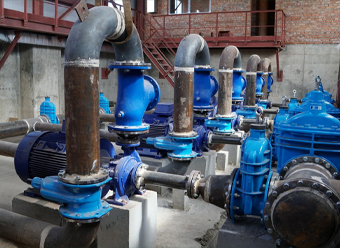Tatar
- Afrikaans
- Albanian
- Amharic
- Arabic
- Armenian
- Azerbaijani
- Basque
- Belarusian
- Bengali
- Bosnian
- Bulgarian
- Catalan
- Cebuano
- Corsican
- Croatian
- Czech
- Danish
- Dutch
- English
- Esperanto
- Estonian
- Finnish
- French
- Frisian
- Galician
- Georgian
- German
- Greek
- Gujarati
- Haitian Creole
- hausa
- hawaiian
- Hebrew
- Hindi
- Miao
- Hungarian
- Icelandic
- igbo
- Indonesian
- irish
- Italian
- Japanese
- Javanese
- Kannada
- kazakh
- Khmer
- Rwandese
- Korean
- Kurdish
- Kyrgyz
- Lao
- Latin
- Latvian
- Lithuanian
- Luxembourgish
- Macedonian
- Malgashi
- Malay
- Malayalam
- Maltese
- Maori
- Marathi
- Mongolian
- Myanmar
- Nepali
- Norwegian
- Norwegian
- Occitan
- Pashto
- Persian
- Polish
- Portuguese
- Punjabi
- Romanian
- Russian
- Samoan
- Scottish Gaelic
- Serbian
- Sesotho
- Shona
- Sindhi
- Sinhala
- Slovak
- Slovenian
- Somali
- Spanish
- Sundanese
- Swahili
- Swedish
- Tagalog
- Tajik
- Tamil
- Tatar
- Telugu
- Thai
- Turkish
- Turkmen
- Ukrainian
- Urdu
- Uighur
- Uzbek
- Vietnamese
- Welsh
- Bantu
- Yiddish
- Yoruba
- Zulu
Telephone: +86 13120555503
Email: frank@cypump.com
Ноя . 04, 2024 01:55 Back to list
chemical liquid pump
Chemical Liquid Pumps An Essential Component in Various Industries
Chemical liquid pumps are crucial devices used to transfer, move, or circulate a wide range of liquids, particularly in industries that handle hazardous, corrosive, or aggressive fluids. These pumps play a vital role in sectors such as chemical manufacturing, pharmaceuticals, food and beverage, and environmental applications, ensuring efficient and safe fluid handling.
Types of Chemical Liquid Pumps
There are several types of chemical liquid pumps, each designed to handle specific applications. The most common types include diaphragm pumps, centrifugal pumps, gear pumps, and peristaltic pumps.
1. Diaphragm Pumps These pumps are ideal for transferring corrosive and viscous fluids. They operate using a flexible diaphragm that creates a vacuum and draws liquid into the pump chamber. Their ability to handle solids and slurries makes them a popular choice in wastewater treatment and chemical processing.
2. Centrifugal Pumps Widely used in various industries, centrifugal pumps move fluid by converting rotational energy from a motor into hydraulic energy. They are efficient for low-viscosity liquids but may not be suitable for very thick fluids.
3. Gear Pumps Known for their ability to provide a steady flow of high-viscosity liquids, gear pumps use the meshing of gears to move the fluid. They are commonly used in the oil and petrochemical industries.
chemical liquid pump

4. Peristaltic Pumps These pumps are ideal for sanitary applications as they minimize contamination risks. They work by squeezing a hose to push the liquid through, making them suitable for food processing and pharmaceutical applications.
Applications and Benefits
Chemical liquid pumps are used in various applications, including but not limited to
- Chemical Processing Moving hazardous chemicals safely and efficiently. - Pharmaceutical Manufacturing Ensuring accurate dosing of ingredients. - Wastewater Treatment Handling sludge and transporting waste materials. - Food and Beverage Transferring ingredients while maintaining hygiene standards.
The benefits of using chemical liquid pumps include improved efficiency, reduced risk of spills and leaks, and enhanced safety for workers handling hazardous substances. By selecting the appropriate pump type for specific applications, industries can optimize their processes and ensure more reliable operations.
Conclusion
In summary, chemical liquid pumps are integral to many industries, providing essential functionality for transferring and managing liquids, particularly those that pose safety and environmental challenges. Understanding the different types of pumps available and their specific applications is vital for businesses looking to enhance their fluid handling processes while ensuring compliance with safety regulations.
-
High-Efficiency Submersible Effluent Pump for Sewage & Wastewater Solutions
NewsJul.08,2025
-
High Quality CH Warman Slurry Pump Factory - Leading Horizontal Slurry Pump Supplier
NewsJul.08,2025
-
Hot Sale Chemical Circulating Pump – Efficient & Durable Slurry Circulating Pump Solutions
NewsJul.08,2025
-
High-Efficiency Submersible Dredge Pump for Sand & Gravel Durable Dredge Slurry Pumps Solutions
NewsJul.07,2025
-
Wholesale Slurry Pump Impeller Supplier – High-Quality & Efficient Pump Parts for Enhanced Performance
NewsJul.07,2025
-
High-Efficiency Water Submersible Pumps Reliable Water Pump for Potable Water Supply
NewsJul.06,2025










